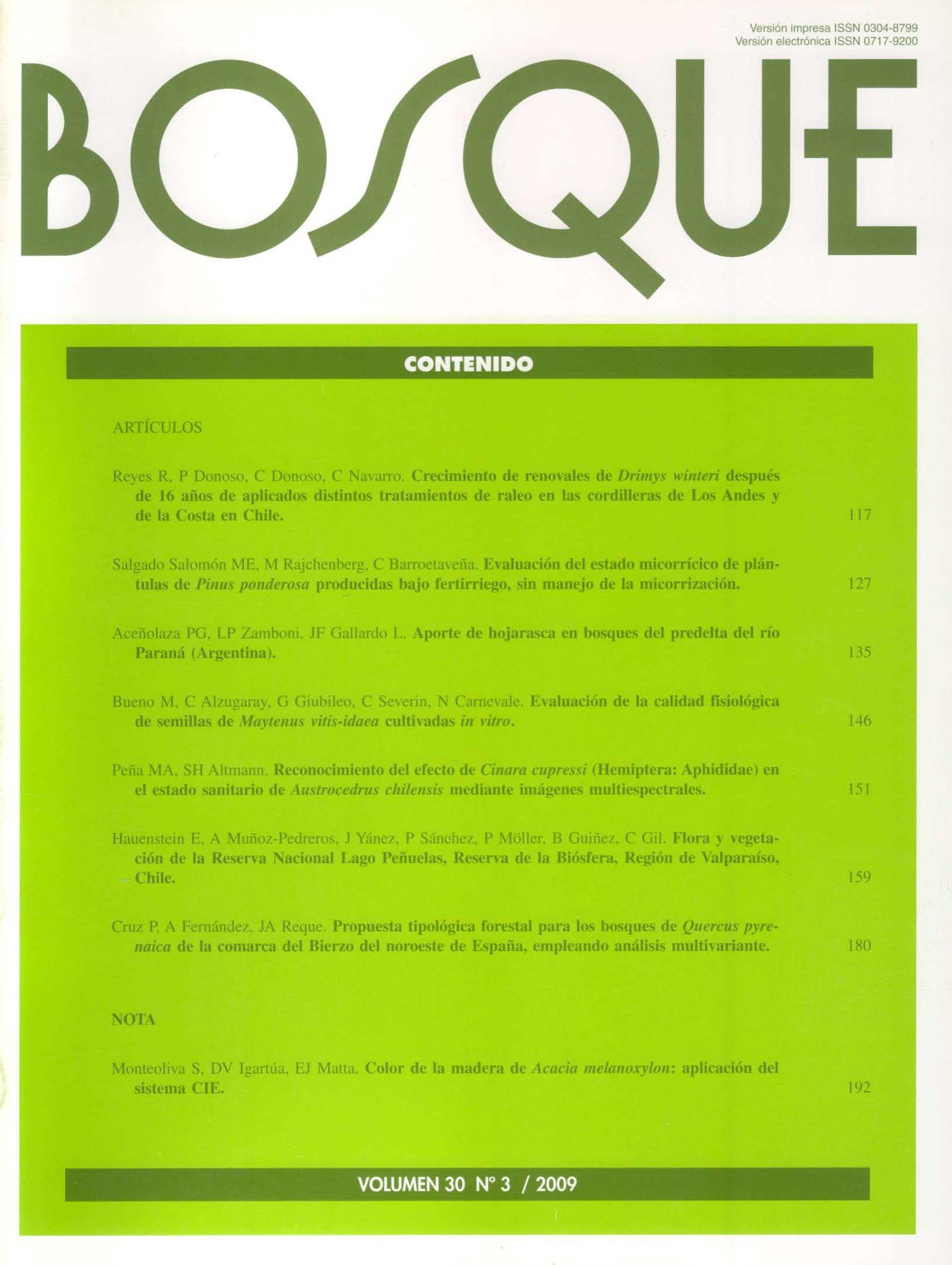Main Article Content
Dec 31, 2009
Abstract
Maytenus vitis-idaea is a bush which reaches 2-5 m in height. It is found in the Paraguayan-Bolivian Chaco and in the north and central regions of Argentina. In addition to its ecological importance, its leaves were used as salt by the native inhabitants of Paraguay and have medicinal value. The objective of this work was to study the physiological quality of M. vitis-idaea seeds cultured in vitro with the purpose to start improvement of biotechnological protocols because its germination is rather unknown and there is no information about in vitro culture for this species. Seeds were tested with the topographical tetrazolium test, and seeds were grown in agar-water (AA) and a medium containing mineral salts and vitamins of Murashige and Skoog (1962) (MS). The following data were recorded: germination percentage, speed of germination (VG) and average time to reach maximum germination (TM). Root and hypocotyls length was measured during 44 days. The tetrazolium test showed 100% viability of the seeds. Germination percentage was significantly higher in the AA medium (62%) than in MS medium (36%) at 20 days after the implantation; germination percentages at 40 days were 92 and 100% for AA and MS, respectively. In vitro culture of M. vitis-idaea seeds in the medium without mineral salts hastened germination and promoted the vigour of the seeds.


